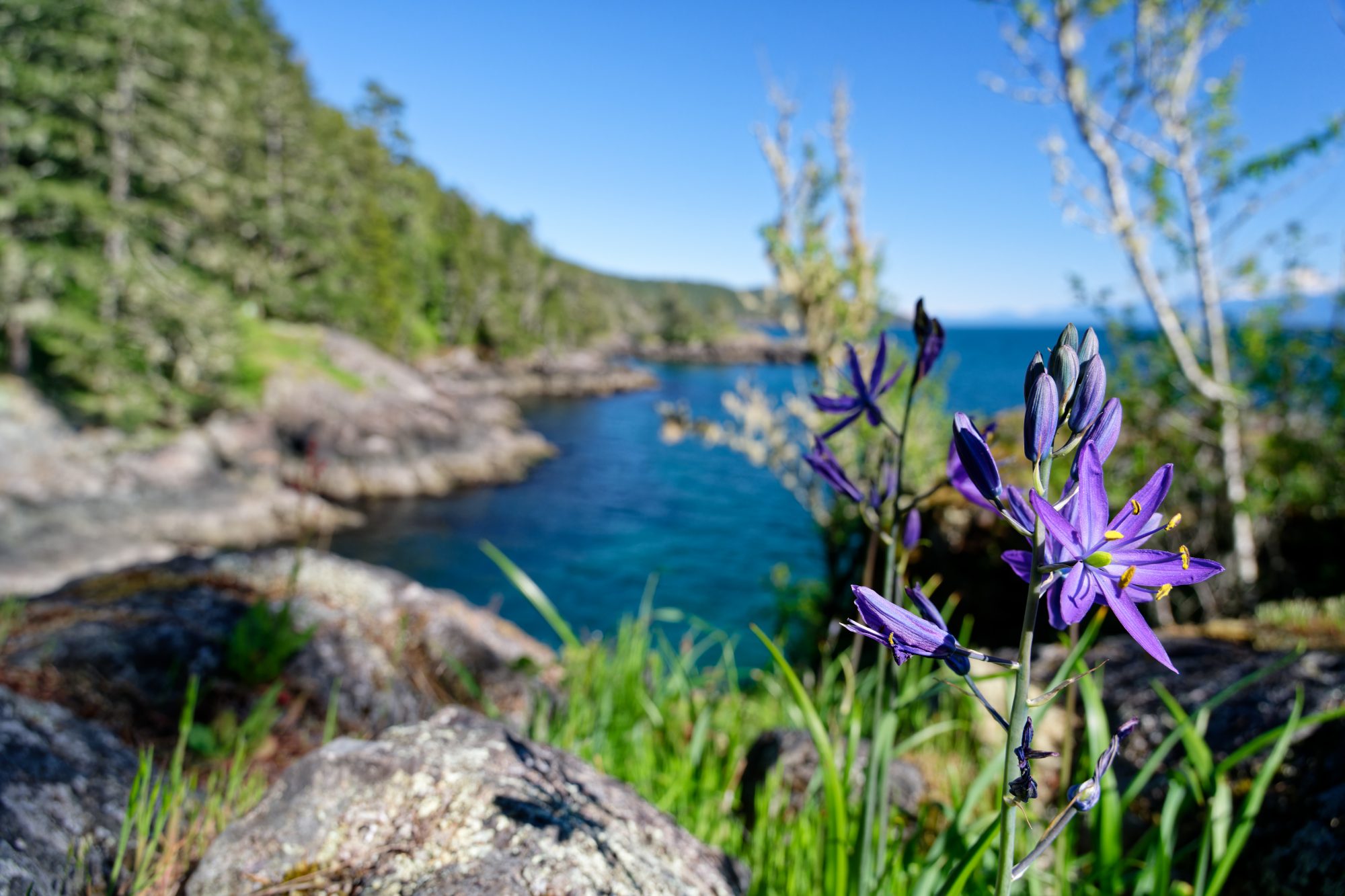The Pacific Institute for Climate Solutions (PICS) is proud to introduce the Uplifting Reciprocal Research Scholarship Pilot Program.
The scholarship is designed to strengthen research and capacity in alignment with the BC First Nations Climate Strategy and Action Plan and the Action Plan for Disaster Risk Reduction by First Nations in BC.
This pilot program supports graduate-level scholars (master’s, doctoral, and post-doctoral) enrolled at PICS universities whose work advances climate change adaptation and mitigation in collaboration with First Nations communities in what is now known as British Columbia.
Scholarship recipients receive financial support and contribute to the broader research and climate action community by developing case study knowledge highlights. Awardees participate in PICS events and connect with other researchers working on similar projects, fostering collaboration and offering opportunities to share knowledge, lessons learned, and experiences.
This program reflects PICS’ commitment to fostering reciprocal, community-driven research that uplifts Indigenous leadership in climate action. This program honours that the First Nations Leadership Council (FNLC) and the Pacific Institute for Climate Solutions (PICS) have entered into a Relationship Protocol to advance First Nations climate leadership and priorities including capacity building, research, and educational opportunities.
Meet the Scholars
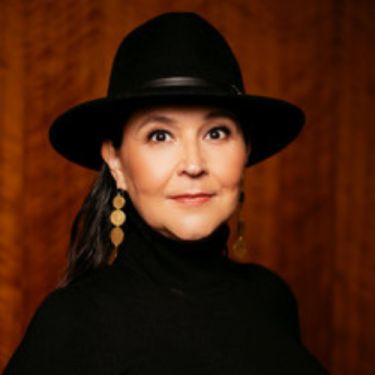
Dr. Lucy Sdahl Ḵ'awaas Bell
Postdoctoral Fellow, Simon Fraser University
Dr. Lucy Sdahl Ḵ'awaas Bell
Dr. Lucy Bell, from Old Massett, Haida Gwaii, is a Haida museologist and scholar with 30 years of experience in heritage revitalization and repatriation. Grounded in Haida values, she co-led the return of hundreds of Ancestors and Belongings from institutions around the world, viewing repatriation as an act of healing. She co-authored the Indigenous Repatriation Handbook and From Stealing to Healing: Repatriation and BC First Nations.
As the first Head of Indigenous Collections and Repatriation at the Royal BC Museum, Lucy challenged systemic racism and helped spark national change in the heritage sector. She continues to support the museum sector as a board member of the Canadian Museum Association and as an Indigenous advisory member to the BC Museums Association.
Her PhD, Tla Yahda: Haida Museology Makes Things Right, speaks to how her Haida Ancestors strived to make things right as we do today in the museum sector. Lucy didn’t just dedicate her dissertation to her daughter, she wrote her whole dissertation to her.
In 2025, Lucy was the proud recipient of the BC Reconciliation award and the King Charles Coronation medal.
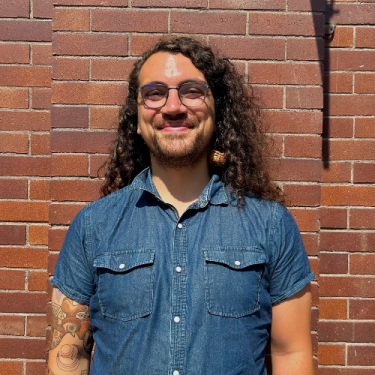
Octavio Alonso Cruz Coto
PhD candidate, University of Victoria
Octavio Alonso Cruz Coto
Octavio Alonso Cruz Coto is a doctoral student in the Sellemah Applied Ethnoecology Laboratory at the University of Victoria, within the Environmental Studies department (expected graduation in 2029).
Originally from Caracas, Venezuela, his mestizo ancestry shapes the responsibilities he brings as a settler guest working alongside Pauquachin First Nation on Southern Vancouver Island. He has worked as a Marine Manager for Pauquachin First Nations’ Marine and Stewardship program since 2020, emphasizing reciprocity, sovereignty, and applied climate adaptation. His doctoral research examines Indigenous-led marine stewardship, focusing on shellfish restoration and the impacts of colonial governance on food systems. Central to this work is Pauquachin First Nation’s applied climate resiliency projects, which integrate shoreline softening, bioengineering, and Indigenous sea garden construction works that aim to address severe foreshore erosion, storm surge risk, and reduce food insecurity within intertidal spaces in the face of climate change.
By weaving Indigenous knowledge with ethnoecological sciences, Octavio aims to support Pauquachin’s long-term goals of restoring marine ecosystems, revitalizing cultural practices, and advancing Indigenous governance in climate and erosion control contexts.
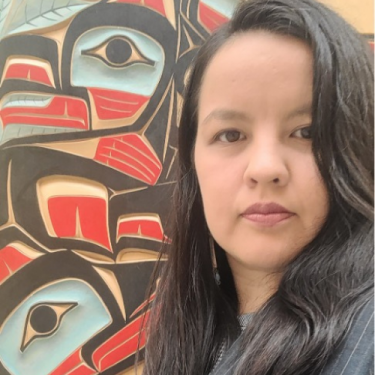
Marion Erickson
PhD candidate, University of Northern British Columbia
Marion Erickson
Marion Erickson is a Dakelh woman from the Lhts’umusyoo (Beaver Clan). Marion is a researcher and educator focusing on Indigenous health, language revitalization, and community well-being. With a background in public administration and community development, she currently serves as Research Manager at the Health Arts Research Centre and is a PhD Health Sciences student at the University of Northern British Columbia.
Marion’s work emphasizes the integration of arts-based approaches and Indigenous knowledge systems to address health inequities and promote cultural resilience. She has led projects on Indigenous voices in healthcare, the revitalization of Dakelh language and midwifery, and the development of culturally safe health services. Marion’s PhD research aims to advance Dakelh midwifery by developing and implementing a Dakelh doula training curriculum, with the goal of strengthening community-led birth support and preserving traditional birthing practices within Dakelh communities. In doing this work the community recognizes that birthwork.
Climate change work is deeply connected to birthwork, as both centre on sustaining life and protecting future generations. For rural Dakelh communities, revitalizing traditional birthing practices is not only a matter of cultural survival but also of resilience—ensuring families have locally grounded, land-based systems of care when climate disruptions threaten access to healthcare. Marion’s work recognizes that the restoration of Dakelh birthing knowledge, communities strengthen their self-determination and capacity to nurture new life in harmony with the land that has always provided sustenance.
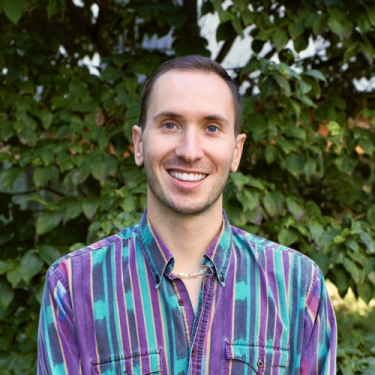
Felix Giroux
PhD candidate, University of British Columbia
Felix Giroux
Felix Giroux is a PhD candidate in the Department of Anthropology at the University of British Columbia, researching green hydrogen developments in Canada. His interdisciplinary research and advocacy critically examine issues of power, technology, and the reproduction of green colonial capitalism within the energy transition.
Working with Xaxli’p First Nation, Felix focuses on the governance of green hydrogen, exploring how Indigenous communities can shape and reimagine climate infrastructure on their own terms. Through this work, he aims to contribute to both community-led decision-making and broader policy conversations that advance climate justice.
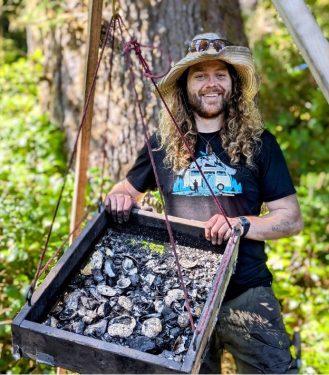
Dylan Hillis
PhD candidate, University of Victoria
Dylan Hillis
Dylan Hillis is of British and Icelandic settler ancestry and grew up in the Southern Gulf Islands – the lands and waters of Coast Salish peoples. As a fourth-generation descendant of a fishing family, his family’s direct involvement in the commercial fishing industry in B.C. has been a driving force and has shaped his research approach.
Since 2017, Hillis has had the privilege of witnessing and working as an archaeologist and researcher in Nuu-chah-nulth Territories alongside the contemporary rights holders and descendants of the original, deep-time leaders responsible for managing the relationships between people, lands, and waters. Weaving archaeological and ecological evidence with Nuu-chah-nulth governance principles and knowledge, his PICS-funded research considers how archaeological approaches are supporting cultural renewal and community well-being through the extension of shellfish harvest information. By comparing archaeological clamshell information against contemporary ecological conditions, his research contributes much-needed baseline data to inform community harvests and management objectives that support Nuu-chah-nulth-led food sovereignty initiatives.
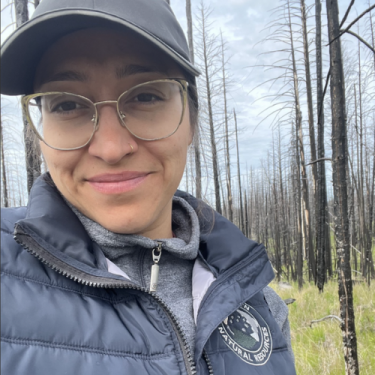
Elizabeth (Lizzy) Ignace
PhD candidate, University of British Columbia
Elizabeth (Lizzy) Ignace
Elizabeth (Lizzy) Ignace is Secwépemc from Skeetchestn Indian Band and is currently working as a Cultural Heritage Agrologist in her community while also attending school full time.
Her research project, Revitalising Saskatoon in Skeetchestn, brings Secwépemc Knowledge together with western science using a “Walking on Two Legs” approach. She interviews Elders and Knowledge Keepers and studies berry and plant traits, then weaves that knowledge with genetic and ploidy analyses to guide restoration and strengthen food systems.
Lizzy’s daughter is her inspiration in this work. As a single mother, she wants her daughter to inherit language, land, and foodways that are living and loved, and she hopes her work will help make that possible for her community.
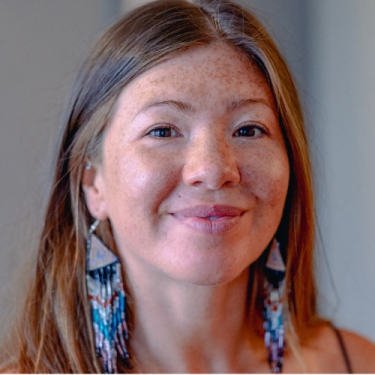
Zoë Leech
Masters student, University of Victoria
Zoë Leech
Zoë Leech is an Indigenous woman of mixed St’at’imc/Cree and German/Hungarian ancestry, born and raised on shíshálh territory. She is pursuing a Master of Science in Environmental Studies at the University of Victoria in Natalie Ban’s Marine Ethnoecology Lab.
Her research, invited by the Kitasoo Xai’xais Nation, supports the development of Indigenous marine protected areas by centering cultural and spiritual values in marine stewardship objectives. Zoë works alongside the Kitasoo Xai’xais Stewardship Authority as a co-researcher, bringing her technical background in natural resource protection and applying social science methods rooted in Indigenous research methodologies. She is guided by the strength of the Kitasoo Xai’xais Nation asserting their inherent rights and responsibilities to land and sea as she seeks to centre their knowledge systems that honour intergenerational teachings and relationships with place into marine stewardship frameworks.
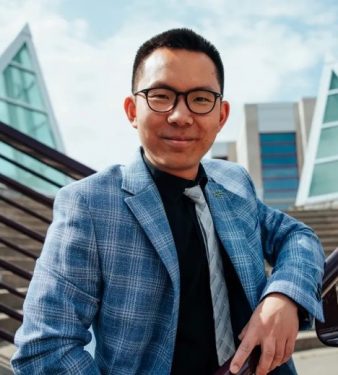
Dr. Guowei Li
Postdoctoral Fellow, University of Northern British Columbia
Dr. Guowei Li
Guowei Li resides in Prince George, British Columbia, on the traditional territory of the Lheidli T’enneh Nation. He recently completed his PhD at the University of Northern British Columbia, where his research examined the influence of submerged obstructions on flow, turbulence, and sediment dynamics in ice-covered rivers.
Currently, as a postdoctoral fellow, he is working with the Ministry of Forests and the Takla Nation to monitor climate-driven impacts on forest service roads and watersheds using hydrometric stations and ecohydrological approaches. Li’s work is inspired by the pressing need to co-develop climate adaptation strategies with communities, blending engineering science with local knowledge. He is particularly motivated by the opportunity to transform technical research into solutions that enhance ecological resilience, protect infrastructure, and honor reciprocal relationships with the lands and waters we rely upon.
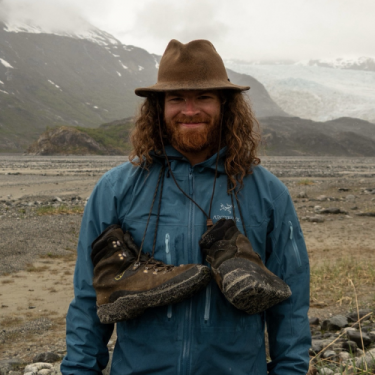
Ben Louter
PhD candidate, University of Victoria
Ben Louter
Ben Louter is a settler of Dutch and Irish descent, an archaeologist, and a PhD student at the University of Victoria. Based on the traditional territory of the Taaku Kwáan Tlingit people, his doctoral research combines geomorphology, paleoenvironmental reconstruction, archaeology, and Tlingit oral histories to explore how changing climates and landscapes shaped human adaptation in Lingít Aaní (Southeast Alaska and northwest British Columbia).
Ben has lived and worked in community with the Taku River Tlingit First Nation for the past six years, supporting cultural heritage initiatives and helping to build a community-led heritage database that connects archaeological findings with oral traditions, maps, and archival materials. His work is rooted in relationships and in advancing Indigenous data sovereignty, inspired by the ways place-based research can strengthen ties between people, knowledge systems, and land.
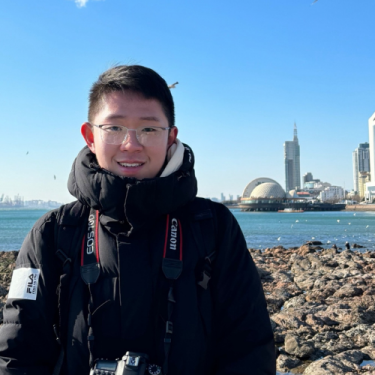
Shixuan Lyu
PhD candidate, University of British Columbia
Shixuan Lyu
Shixuan Lyu is a PhD student at the University of British Columbia, Okanagan campus, working under the supervision of Dr. Adam Wei. His research focuses on how summer low flows respond to the combined impacts of climate change and forest disturbances, such as logging and wildfire, particularly in community watersheds. Witnessing the increasing risks of water scarcity and severe wildfire seasons in British Columbia has motivated him to pursue this work. He is inspired to translate complex hydrological data into practical insights that can guide sustainable water management and strengthen the resilience of communities facing escalating climate challenges.
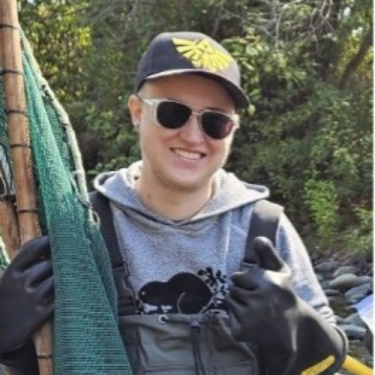
Danny McNeil-Willmott
PhD candidate, University of Northern British Columbia
Danny McNeil-Willmott
Danny McNeil is a Red River Métis PhD student at the University of Northern British Columbia, located on the traditional, ancestral, and unceded territory of the Lheidli T’enneh First Nation, part of the Dakelh (Carrier) peoples’ territory.
Danny’s research is carried out in partnership with Williams Lake First Nation. The overarching themes driving this work are Indigenous fire stewardship and its utilization in ecological restoration and conservation. A fundamental component of their thesis involves determining specific research objectives in partnership with Williams Lake First Nation community members, elders, and knowledge keepers.
They emphasizes that this work does not personally belong to them but to Williams Lake First Nation. At the heart of the project lies their deep drive to introduce Indigenous ways of relational knowing and kinship-centric ecological thought into Western spaces. They describe their research as a love letter to all their relations, human and non-human alike.
As a Métis scholar, Danny reflects on what it means to occupy liminal spaces between places, identities, and cultures. While these spaces may feel uncomfortable to inhabit, they also give rise to beautiful and enduring creations. Their project explores and celebrates the liminal relationship between Indigenous and Western science and asks: “What could our relationship with the land look like if we weave different ways of seeing together, in a good way?”
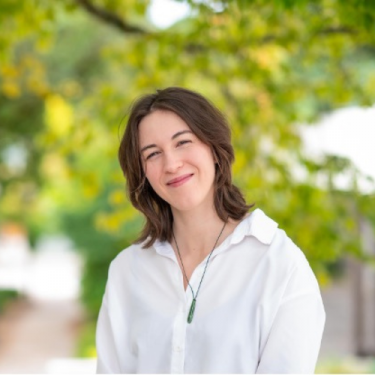
Charlotte Milne
PhD candidate, University of British Columbia
Charlotte Milne
Charlotte Milne is from Aotearoa (NZ) and whakapapa (holds ancestry) to Te Rarawa (a Māori iwi/tribe from the upper North Island) and to Pākehā (white settlers). She now lives, works, and learns in British Columbia, primarily on the unceded traditional territories of the Musqueam, Squamish, and Tsleil-Waututh peoples.
Charlotte’s background is in river and geospatial sciences, and she has been working on disaster-related projects for a decade. Since 2020, her research has expanded to include social science methods, with a focus on collaborating with Indigenous communities to increase disaster resilience. Her PhD research is centered on flood risk reduction in Canada, particularly how floods are mapped and managed. She is especially interested in how flood mapping systems can be improved to better serve the rights and interests of First Nations, and she collaborates with Sumas First Nation and other partners on this work.
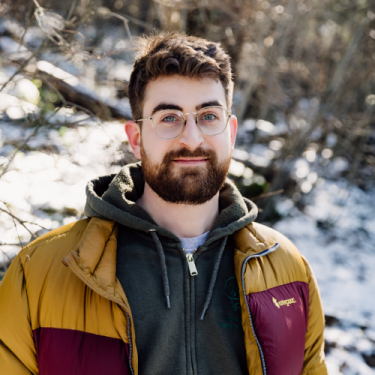
Sean O’Rourke
PhD candidate, University of British Columbia
Sean O’Rourke
Sean O’Rourke is broadly interested in how narratives influence worldviews and decision-making, and ultimately shape peoples’ relationships with their environments.
His PhD research supports planning that ƛ̓əq̓ƛ̓áq̓tn̓mx (Kanaka Bar Band) of the nłeʔkepmx (Nlaka’pamux) Nation are doing as they work to heal and uphold good relations with tmíxʷ (the territory and all of its interconnected inhabitants). Since 2021, Sean has worked with ƛ̓əq̓ƛ̓áq̓tn̓mx to direct this initiative. To answer his research question—how did ƛ̓əq̓ƛ̓áq̓tn̓mx care for tmíxʷ in the past, and how should this be done today?—he is speaking with Elders and knowledge keepers, studying teachings passed down from prior generations (life-learnings, creation stories), and reviewing historic and scientific literature.
Sean’s research directly informs planning to care for a new conservation area established by ƛ̓əq̓ƛ̓áq̓tn̓mx, while also more broadly exploring how humankind can nurture better relations with the world around us.
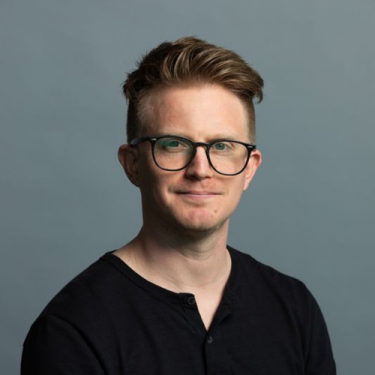
Brian Timmer
PhD candidate, University of Victoria
Brian Timmer
Brian Timmer is a Stó:lō researcher of mixed ancestry living in lək̓ʷəŋən Traditional Territory. As a former SCUBA instructor who fell in love with the kelp forests of Vancouver Island, Timmer’s research path was solidified as an undergraduate student when the largest marine heatwave ever recorded hit the west coast of North America, killing all the bull kelp forests along the shores of Nanoose where he taught SCUBA. These losses led to his research on climate change impacts in kelp forests and the nearshore ecosystems they support.
Brian is now doing his PhD in the Baum Lab at the University of Victoria, working closely with First Nations communities in B.C. to lower barriers to kelp forest monitoring and restoration. Outside of his thesis, Brian is working on a National Geographic funded project that uses 360 cameras and virtual reality headsets to create immersive SCUBA experiences of kelp forests for First Nations youth.
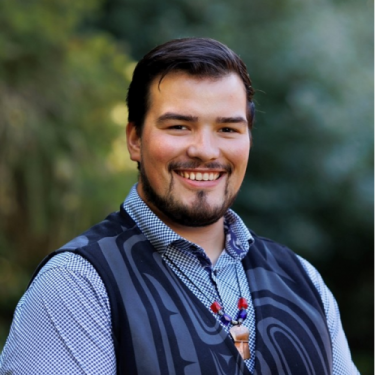
Michael Vegh
Masters student, University of Victoria
Michael Vegh
Q̓án̓ístisḷa Michael Vegh is a member of the Heiltsuk Nation and a second-year MBA student in Sustainable Innovation at the University of Victoria, currently residing in Nuu-Chah-Nulth territory. His work focuses on Indigenous-led climate action, conservation finance, and governance rooted in Indigenous law. Vegh’s current research explores how investments in the conservation economy can support long-term community well-being alongside environmental stewardship.
Drawing from his experience in marine planning, Indigenous governance, and energy sovereignty, Vegh is committed to systems change that centres Indigenous worldviews. He is rooted in the belief that Indigenous Peoples are leading solutions to the climate crisis — not only through policy and science, but through deep relationships with land, water, and future generations.
Case Study Knowledge Highlights
The PICS scholars are producing in-depth case study knowledge highlights that showcase the innovative research and insights emerging from their work.
These case studies will be published on the PICS website and shared widely across the PICS network. Keep an eye on this space as the scholars’ work will provide valuable insights for researchers, policymakers, and communities working on climate solutions.
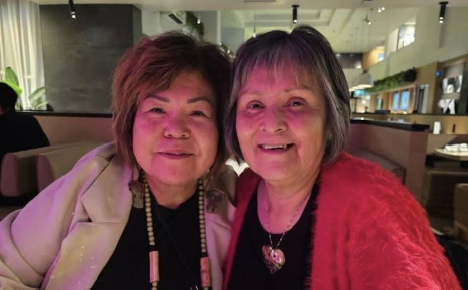
Program Dedication to Leona and Valerie Humchitt
With consent from their families, The Uplifting Reciprocal Research Scholarship Program is dedicated to two distinguished matriarchs from the Heiltsuk Nation, Leona and Valerie Humchitt. Leona and Valerie were sisters-in-law, and both had a deep passion for Indigenous-led education and changemaking.
Leona was a visionary and passionate leader driving clean energy solutions and climate action within First Nation communities across what is now known as B.C. As the climate action coordinator for the Haíɫzaqv Climate Action Team, Leona shaped and supported a holistic and community-led and supported approach to climate solutions that were deeply rooted in the Heiltsuk culture and teachings.
To honour these women and their beautiful dreams for the future, this scholarship is designed to support the next generation of climate leaders and create opportunities that uplift reciprocal research relationships in support for the BC First Nations Climate Strategy.
Photo source: FACEBOOK
Uplifting Reciprocal Research Scholarship Program Application
Applications for the Uplifting Reciprocal Research Scholarship Program are now closed. Please check back for updates in Spring 2026.
